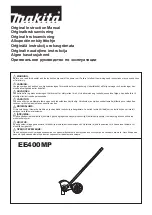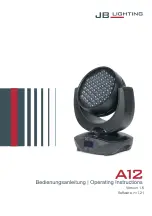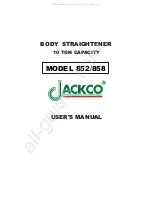
NI 5105 Calibration Procedure
|
© National Instruments
|
9
You can initiate self-calibration using the following programs:
•
MAX
•
NI-SCOPE Soft Front Panel (SFP)
•
NI-SCOPE
Note
The device must be installed in MAX before it can be used in another
program.
MAX
To initiate self-calibration from MAX, complete the following steps:
1.
Disconnect or disable any AC inputs to the device.
2.
Launch MAX using the NI MAX desktop icon.
3.
Select
My System»Devices and Interfaces»NI-DAQmx Devices
.
4.
Select the device that you want to calibrate.
5.
Initiate self-calibration using one of the following methods:
•
Click
Self-Calibrate
in the upper right corner of MAX.
•
Right-click the name of the device in the MAX configuration tree and select
Self-Calibrate
from the drop-down menu.
NI-SCOPE Soft Front Panel
To initiate self-calibration from the NI-SCOPE Soft Front Panel (SFP), complete the following
steps:
1.
Disconnect or disable any AC inputs to the device.
2.
Launch the NI-SCOPE SFP by selecting
Start»All Programs»National Instruments»
NI-SCOPE»NI-SCOPE Soft Front Panel
.
3.
Select the device you want to calibrate from the Select Device dialog box. The Select
Device dialog box automatically opens when you launch the NI-SCOPE SFP.
Note
To change the device, select
Edit»Change Device
, and select the new device
that you want to calibrate.
4.
Launch the Calibration dialog box by selecting
Utility»Self Calibration
.
5.
Click
OK
to begin self-calibration.
NI-SCOPE
To self-calibrate the NI 5105 programmatically using NI-SCOPE, complete the following steps:
1.
Disconnect or disable any AC inputs to the device.
2.
Open a session and obtain a session handle using the niScope Initialize VI.
Note
Throughout the procedure, refer to the C/C++ function call parameters for the
LabVIEW input values.










































